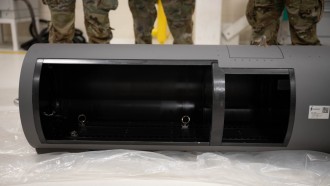Recent research by the International Council on Clean Transportation (ICCT) has revealed an unexpected and concerning trend in plug-in hybrid vehicles (PHEVs) performance.
Plug-in Hybrids and Gas Usage Estimates were Higher than Initially Expected
A story by Engadget shows the results of plug-in hybrids and their gas usage estimates compared to what was initially expected. The article includes revelations from a whistleblower regarding the data.
ICCT's analysis of data from Fuelly and the California Bureau of Automotive Repair (BAR) shows that PHEVs use far more gasoline in the real world than currently estimated by regulatory bodies such as the EPA.
PHEVs were Found to USe Significantly Less Time in All-Electric Mode
The ICCT's research revealed that PHEVs spend between 26-56% less time in all-electric drive mode than the EPA would have predicted. This resulted in PHEVs consuming 42-67% more fuel than the EPA initially assumed.
The data suggest that self-reported mpg data may be skewed towards drivers who are more efficiency-minded and consequently more likely to drive their cars more efficiently and remember to plug them in.
PHEV Fuel Usage was 3-5x Higher Compared to Initial Estimates by the WLTP
Results were even more drastic for Europe, based on an earlier study, where PHEVs' fuel usage and emissions were 3-5 times higher than the WLTP estimates suggested. Researchers identified this as a combination of company vehicles not being plugged in, bolstered by real-world numbers being worse than those of the self-reported estimates.
Stephanie Searle, the study's project manager, noted that the disparity of numbers was not just a few percent, but over 50% between regulatory and real-world estimates, as found with the BAR.
The ICCT has Issued Five Key Recommendations to the EPA to Address Their Findings and Their Effects:
-
Adjusting the regulatory utility factor downwards
-
Requiring in-use data reporting for specific PHEV models
-
Adopting minimum electric driving range requirements
-
Establishing a higher utility factor corresponding to the purchase of PHEVs
-
Incentivizing regular extended charging by providing the cost of driving to users
The finding of the ICCT research may have significant implications for how plug-in hybrid cars are regulated, as they seem to produce more emissions and use more gasoline in practice than previously estimated.
Consumers should take note of the ICCT's research and stay informed of their potential PHEV's real-world efficiency and emissions before investing in a PHEV vehicle.
Read Also: Elon Musk Plans To Promote Tesla's China Head to Global CEO According To Speculations
Smaller-Battery PHEVs Gained Access to the $7,500 Tax Credit
The US government recently enacted an Inflation Reduction Act which allows even small-battery (>7kWh) PHEVs access to the full $7,500 tax credit, which opposes ICCT's suggestion that manufacturers should incentivize regular charging by helping with setting up home chargers and providing users with details on the cost of driving.
In contrast, tax administrators should reward PHEV purchases by confining tax credits to PHEV models with high utility factors.
Related Article: GM Issues Recall for 140,000 Chevy Bolt EVs in US and Canada Over Carpet Fire Risk









